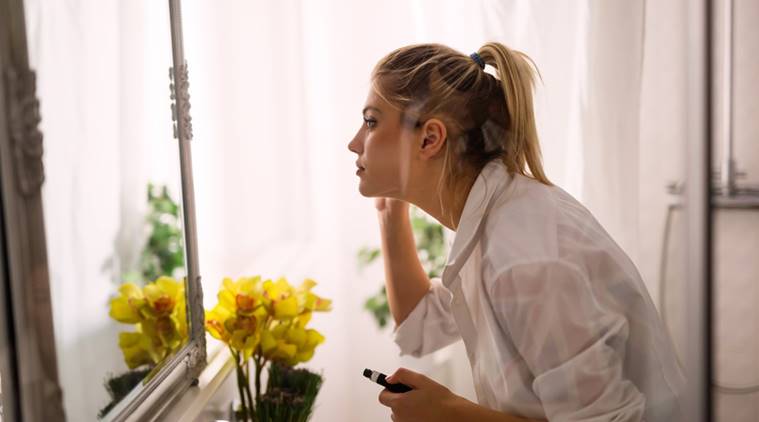- India
- International
Know your makeup: Why paraben is harmful for your skin
The organic industry is booming for all the right reasons. Ditching chemical-infused products such as parabens has become a priority for consumers.
 Ditching chemical-infused products such as paraben has become a must for better skin. (Source: Getty/Thinkstock Images)
Ditching chemical-infused products such as paraben has become a must for better skin. (Source: Getty/Thinkstock Images)
With consumers demanding transparency in beauty labels and their formulations, with an eye on safety and sustainability, the organic industry is booming for all the right reasons. Ditching chemically-infused products, containing ingredients such as parabens, is now a priority for consumers. This is unlike the earlier trend, when people chose convenience and low-priced alternatives in the wake of globalisation and cheaper alternatives flooding the market decades ago. We have now come full circle, with people starting to realise the long-term harmful effects of chemicals and paraben-laden products.
Paraben, among the widely used chemicals in makeup and skincare products, is found in most makeup products, moisturisers, haircare and shaving products, among others. Not all major brands of deodorants contain parabens, though some may. The parabens used most commonly in cosmetics are methylparaben, propylparaben, butylparaben, and ethylparaben. Parabens are commonly used as preservatives in cosmetic products to prevent the growth of harmful bacteria and mould.
“Cosmetics sold to consumers in stores or online must have a list of ingredients, each listed by its common or usual name. This is important information for consumers who want to find out whether a product contains an ingredient they wish to avoid. Parabens are usually easy to identify by their names, such as methylparaben, propylparaben, butylparaben, or ethylparaben,” states an FDA report.
The FDA doesn’t have special rules that apply only to preservatives in cosmetics. The law treats preservatives in cosmetics the same as other cosmetic ingredients. Under the US Federal Food, Drug, and Cosmetic Act (FD&C Act), cosmetic products and ingredients, other than colour additives, do not need FDA approval before they go on the shelves.
“In the last decade, the demand for organic products has almost doubled and this is a significant testament to the shift in mindset and purchasing decision-making factors. The products loaded with chemicals, irrespective of the industry they come from, are known to affect the human health, ecosystem, and environment adversely and the audience seems to have understood this now. The awakening can also be owed to the ill-effects that have started to come to sight with unpredictable weather conditions, newer and incurable health ailments, climate change and natural emergencies,” remarks Naina Ruhail, co-founder, Vanity Wagon.
Here are some of its side effects:

* The use of paraben can make the skin go dry.
* Through the use of paraben, the skin can get brittle, cracked, painful, swollen, develop rashes and several other problems.
* It may even result in contact dermatitis, which is a serious type of skin inflammation characterised by rashes, blisters and burning skin.
* Parabens may cause the skin to age faster.
* Though these allegations are controversial, some medical reports state that parabens can increase estrogen production, leading to estrogen-positive breast cancer and male infertility issues.
May 15: Latest News
- 01
- 02
- 03
- 04
- 05


































